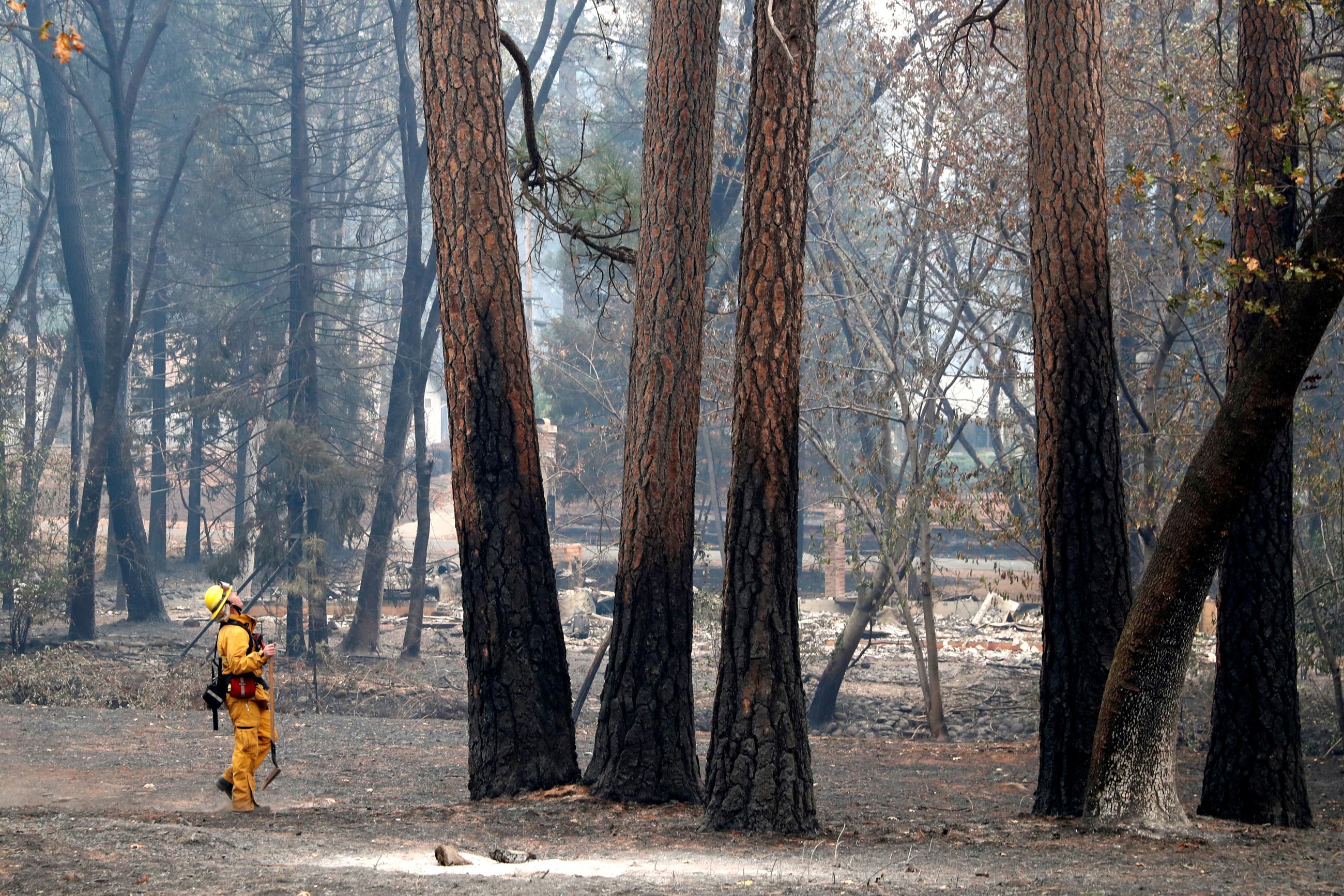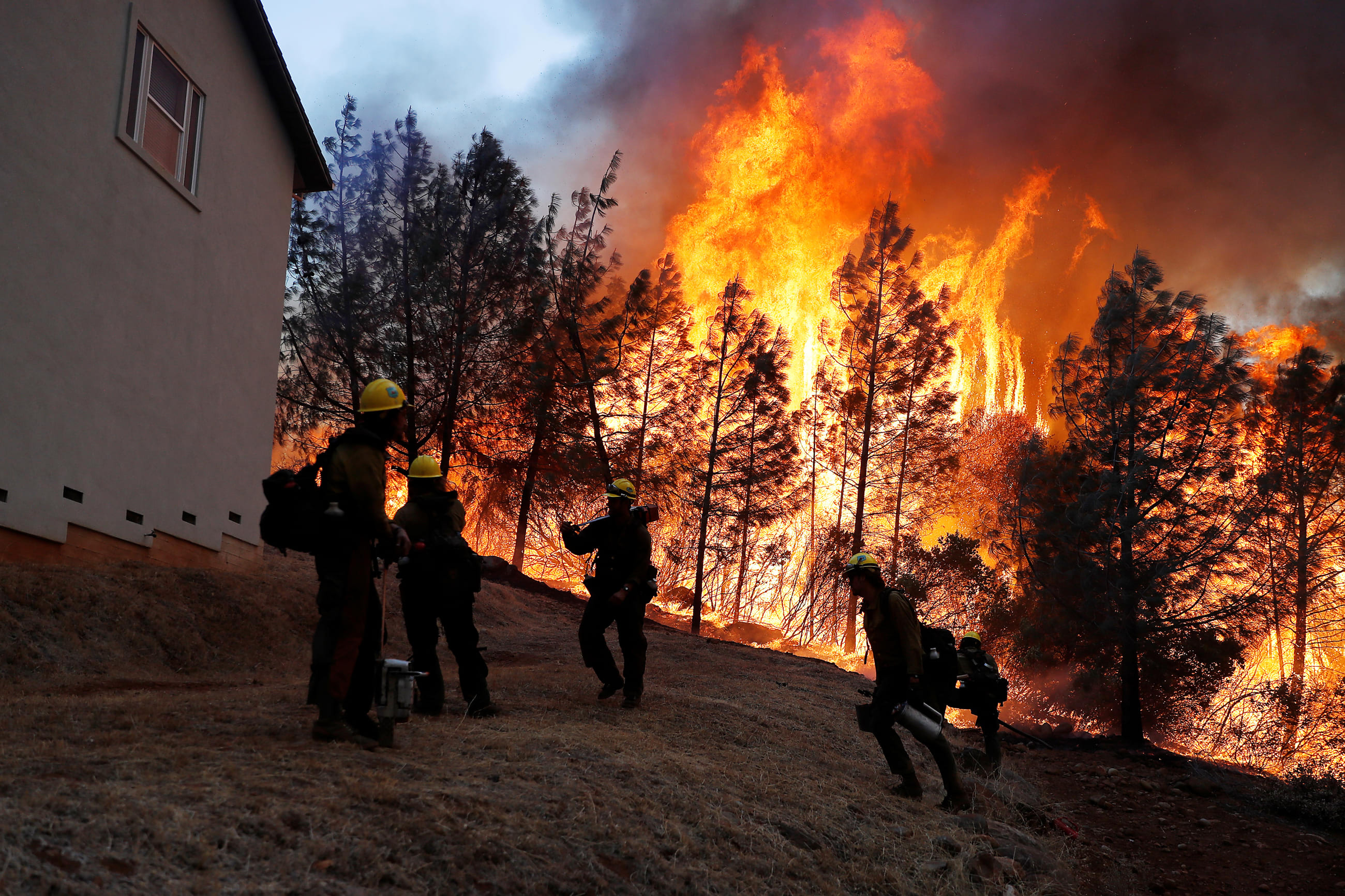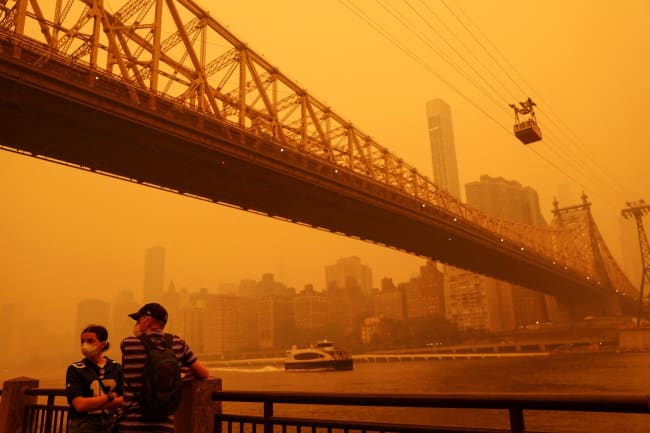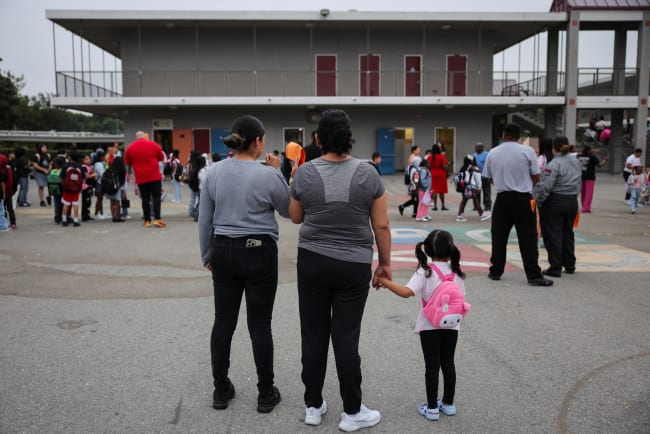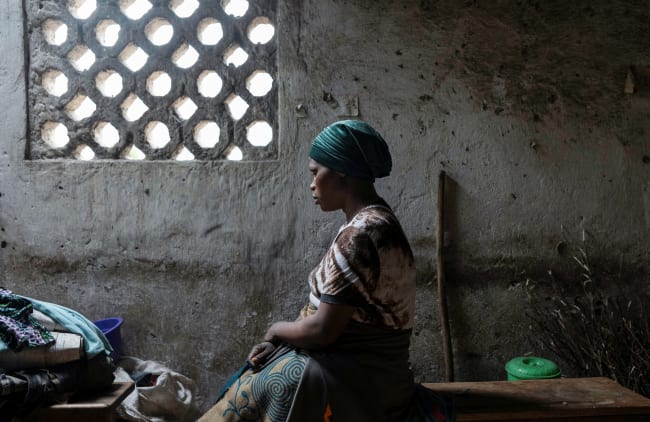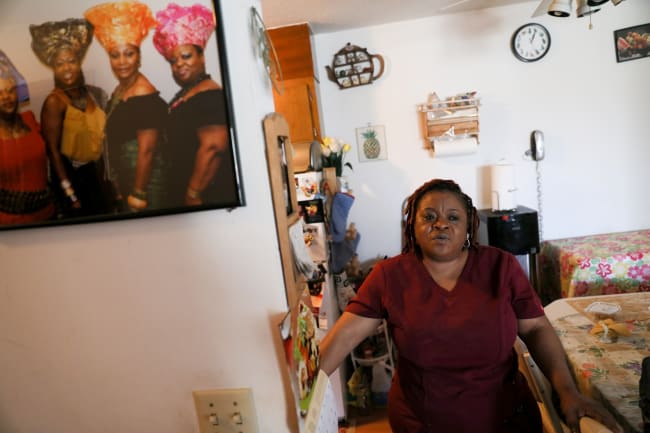The Park Fire, the fourth-largest wildfire in California's history, has burned more than 429,000 acres as of August 19, destroying or damaging nearly 700 buildings along its treacherous path. Officials issued an evacuation warning for the nearby town of Paradise, whose residents are all too familiar with climate-fueled destruction. The state's deadliest wildfire, the Camp Fire, nearly destroyed the town in 2018.
In his book On the Move, ProPublica climate reporter Abrahm Lustgarten uses the devastating Camp Fire as a microcosm of the increasingly frequent ways that extreme weather events, extreme heat, and other climate-driven factors disrupt human life. Over three parts—"The Change," "The Move," and "The Arrival"—Lustgarten explores how climate change will break and remake the world's communities.
Through data-rich writing that relies on models from the Rhodium Group, in-depth interviews, and detailed maps, Lustgarten paints a vivid—albeit bleak—future in which climate change pushes humanity inward toward more moderate climates, with low-income communities, people of color, and older people often left behind. For Lustgarten, the topic is personal: A California resident himself, he wrestles with whether to move his own family as wildfires grow closer every year.
To illustrate the fallout from the Camp Fire, Lustgarten cites geospatial analyst Peter Hansen, who used address registration data to track the movement of the 37,000 affected adults. Hansen's research showed that Paradise residents resettled across all 50 states, to as near as California's Central Valley and as far as Tennessee.
Paradise's Camp Fire Displaced Thousands
Using address data, geospatial analyst Peter Hansen found that Paradise, California residents resettled across all 50 states after the Camp Fire in late 2018
Chico, California, buckled under the weight of its new residents, its unhoused population growing by 16%. By 2021, meanwhile, Paradise had recovered only slightly: Tainted drinking water and other wildfires on the horizon meant residents were not coming back.
Where We Are
As the world warms, climate-driven migration will occur not only in response to disasters like the Paradise Fire but also gradually because of harsher weather conditions and corresponding economic shifts. According to experts, the world has already blown past the most optimistic climate-change scenarios, and any failure to meaningfully reduce CO2 emissions could put countries on a perilous path.
Under current conditions, scientists estimate that nearly one-third of earth's inhabitants will find the places they live "unmanageably hot or dry" by the year 2070. By the end of the century, Lustgarten cites, humans in parts of the world will no longer be able to survive outdoors for more than six hours due to "extreme wet-bulb temperatures," a deadly combination of heat and humidity that prevents human bodies from cooling themselves down.
Global Greenhouse Gas Emissions and Temperatures Rise
Despite national efforts to reduce emissions, the research firm Rhodium Group projects temperature increases of 2°C to 4°C by this century's end

60
4°C
50
Mean
projected
emissions
3°C
40
2°C
30
Historical emissions
Very likely
range
Likely
range
20
1°C
10
0°C
0
Temperature rise
by 2100
2000
2020
2040
2060
2080
2100
Chart:
Adapted from Rhodium Climate Outlook 2023 by CFR/Allison Krugman
:

Likely
range
60
Very likely
range
55
50
45
40
35
30
Emissions
25
2000
2050
2100
4°C
3°C
2°C
1°C
0°C
Temperature rise
by 2100
Chart: Adapted from
Rhodium Climate Outlook
2023 by CFR/Allison Krugman
:
Wet-bulb temperatures will be most severe across India and other parts of South Asia, but will also strike the American Southwest, Michigan, and Ohio. People living in urban areas with limited access to green space will likely bear the greatest heat burden.
Extreme temperatures are already transforming how people live. Heat makes working conditions more difficult and living more expensive as utility costs and insurance premiums balloon. Water reservoirs have begun to shrink, threatening to create dangerous shortages and preventing dams from generating power.
Overall, climate change's economic cost is estimated at $280 billion a year. The hottest and driest parts of the American South will be hit hardest, with low-income areas suffering the largest losses.
Although Lustgarten's book focuses primarily on the United States, it also touches on global trends. On a visit to Guatemala, Lustgarten recounts how drought has combined with deep poverty and violence to force mass migration from the region.
He also foresees unsustainable conditions in Africa. In North Africa's Sahel region, nine countries stretching from the dry Sahara to the humid savanna, the drought is among the worst on the continent, threatening farm economies. Yet the Sahel harbors more than 150 million inhabitants and continues to grow, the average family having five children.
A New Normal
Lustgarten does a masterful job of illustrating that climate change will not affect populations equally. Already, buyers and other financial institutions have engaged in "bluelining"—building on the racist practice of "redlining"—where perceived high environmental risk will further erode economic progress in climate-threatened areas such as Florida and California.
Those without the financial means or the health to resettle will suffer the most, particularly given the lack of social safety nets and structural barriers to health care in the United States. Rather than continuing the cycle of disaster and repair, the urgency of climate change demands a shift toward protection and preservation.
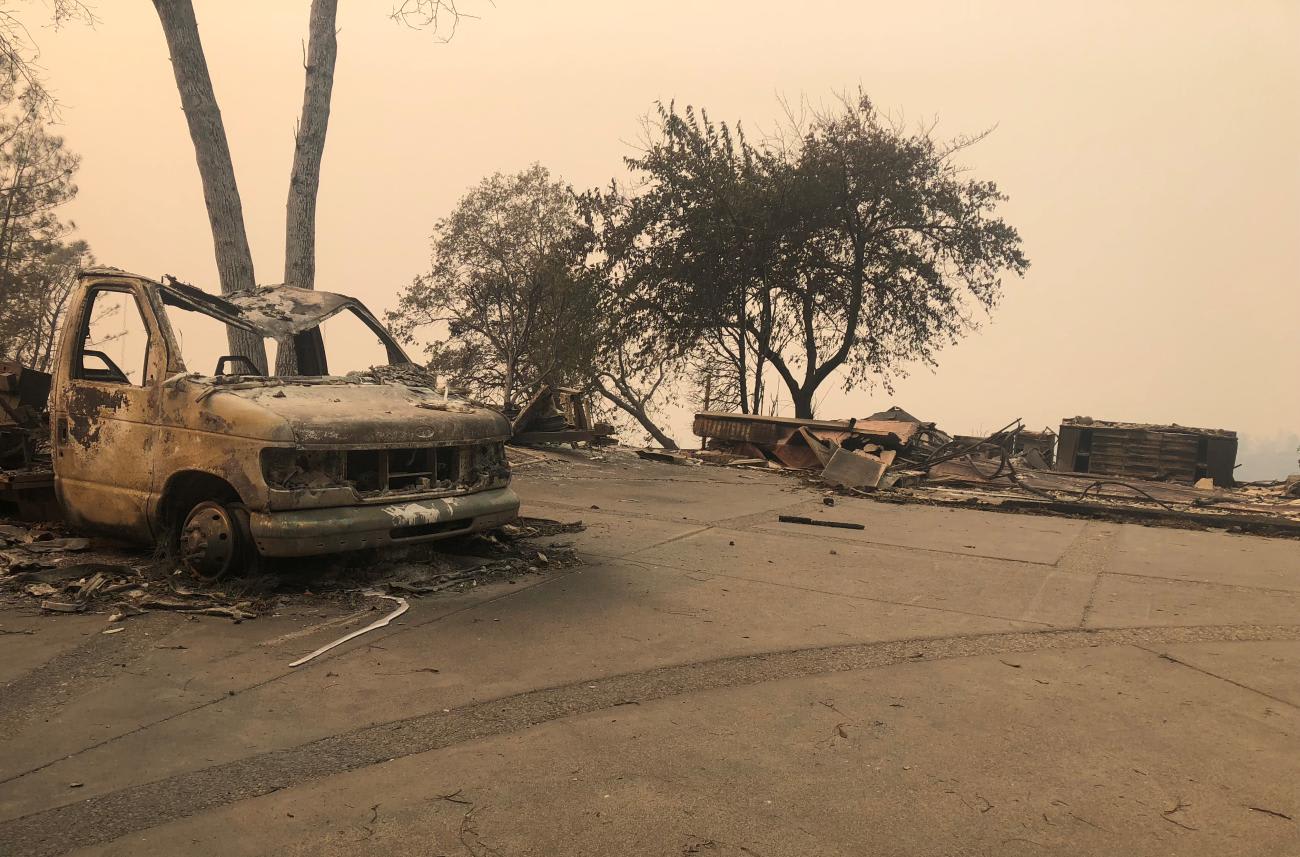
Part of Lustgarten's pessimism stems from the U.S. approach to such challenges, writing that "Adapting to climate change demands something of America that the country isn't necessarily good at: decisive action and forethought."
Even though the vision of the future that Lustgarten outlines in On the Move spells disaster, one interview offers a dose of optimism. In a chapter titled "Opportunity?," he interviews Beth Gibbons, who founded the American Society of Adaptation Professionals to plan for potential large-scale migration. Gibbons rejects the alarmist language surrounding climate migration, warning of the stigma attached to the term refugees.
Instead, she envisions a future in which the northern United States is prepared to welcome those displaced by the climate. "Gibbons sees Michigan's future in the Californians unsettled by wildfire," Lustgarten writes. "Those people are going to move somewhere, so they should be convinced to come to Michigan." By building the state's economy and investing in technology, Gibbons envisions a possible haven for climate migrants.
Adapting to climate change demands something of America that the country isn't necessarily good at: decisive action and forethought
Abrahm Lustgarten
Gibbons admits that her vision sounds idealistic, but the Great Lakes does contain one-fifth of the earth's remaining freshwater reserves. Data shows, given growing water scarcity in other parts of the world, that Michigan's climate will be among the most favorable to agriculture in the latter half of the century.
Reality will likely fall somewhere in between Gibbons' idealistic future and Lustgarten's disastrous one. Regardless of what happens, On the Move is a reminder that communities will need to overcome their fear of others and reluctance to change in order to survive. Climate adaptation will not only involve building sea walls to block rising seas, but also require shoring up health and social systems and addressing deep-rooted inequalities to prevent further chaos.
"There is no more normal to be preserved," writes Lustgarten. "We need to get on with it, and face what's coming."
